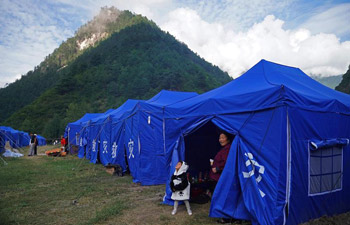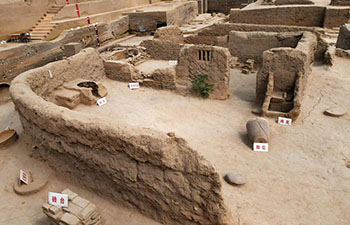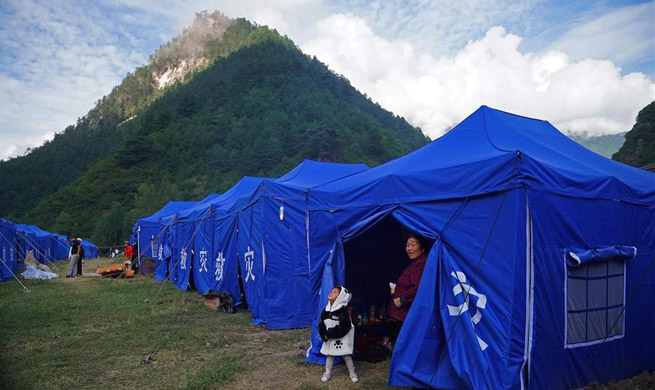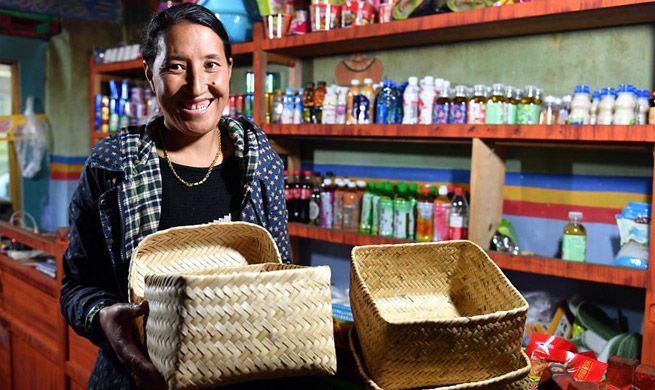GAZA, Aug. 11 (Xinhua) -- Mahmoud Taha, a man in his mid-20s from the Gaza Strip, is dominated by despair due to the deteriorating conditions in the blockaded territory.
The young man said he would drop out marriage as a life choice given his bad financial situation, adding that he sees no horizon for a better future.
Working 15 hours a day, Taha's daily income is below 20 New Israeli Sheqel (NIS), or about 6 U.S. dollars, which forced him to abandon many aspirations.
He works in a rented small booth selling hot drinks, with the income barely covering his daily needs.
The work is hard and time-consuming, he said, but is the only job available for him, while the minor financial return almost blocks all his ambitions for a good future, as his six-year work has not saved him any money.
"Our good days have passed and the future is dark. I wish I could travel abroad to have a better job and life," he said on the eve of International Youth Day, which falls on Saturday.
Gaza has been placed under a tight Israeli blockade since Hamas seized the territory by force after routing forces loyal to President Mahmoud Abbas in 2007.
Poverty has been notably apparent among most of the Palestinians, who have been suffering from the decade-long economic embargo.
In the past eight years, Israel and Hamas rulers of Gaza have been engaged in three major wars that claimed the lives of thousands of Palestinians and Israelis.
The Israeli blockade and wars have forced most of Gaza's populations into poverty, making the resourceless costal enclave one of the poorest areas in the world with an unemployment rate of 42.7 percent.
Official statistics estimate the number of young people in the Gaza Strip at about 542,000 in 2015, among which 275,000 are males and 267,000 females.
Figures also show that 23.6 percent of young Palestinians want to migrate for better living conditions; the figure is 37 percent in the Gaza Strip, and 15.2 percent in the West Bank.
Abdullah Buraidah, a university student from the Gaza Strip, said the idea of migration dominates young people in Gaza, especially college students, who have little hope in finding a job.
Buraidah is in his second year at college, who is supposed to study a summer course. He said he feels "desperate" with no motivation to study, as he is frustrated that there will be no job after graduation.
Figures show that about 18,000 students graduate every year from Gaza universities, more than 100,000 of them jobless.
Moreover, travel is also limited to emergency humanitarian cases, persons over the age of 40, and special coordination procedures, making migration complex and also difficult to the young people.
Israel controls the movement of goods and individuals into and out of the Gaza Strip. The Rafah crossing between the Gaza Strip and Egypt has been closed most of the time since mid-2013 and operates only in certain times for travel of patients and humanitarian cases.
Mustafa Ibrahim, a Human rights activist, said the situation in Gaza is "catastrophic," and is "affecting the economic, psychological and social conditions of young people who lost hope for better future."

















